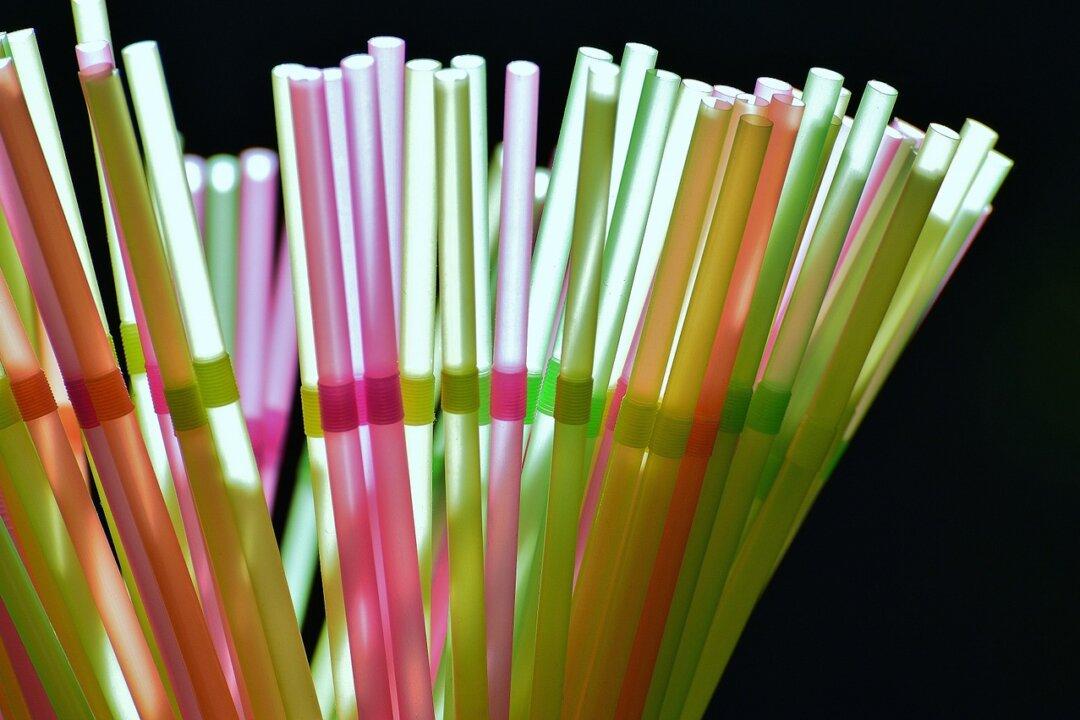The ban on the supply of plastic straws, plastic stirrers, and plastic-stemmed cotton swabs came into effect in England on Oct. 1, as part of an ongoing campaign to protect the environment, clean up the oceans, and protect marine wildlife, the government said.
It comes just a month after the government further discouraged single-use plastic carrier bags by increasing the charge from 5 to 10 pence (13 cents), and making the charge mandatory for all retailers from April 2021.





